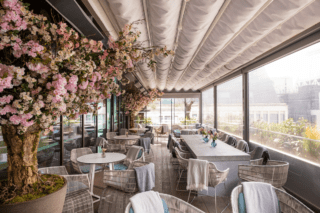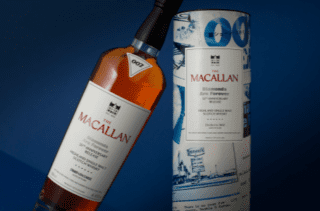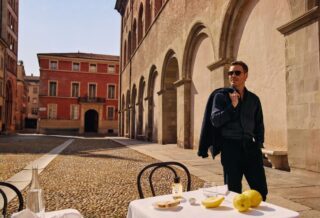This website uses cookies so that we can provide you with the best user experience possible. Cookie information is stored in your browser and performs functions such as recognising you when you return to our website and helping our team to understand which sections of the website you find most interesting and useful.
These top tips from Highclere Thoroughbred Racing could put you on track for a winning investment
By Michelle Johnson | 24 December 2017 | Sport
How do you beat the elation of betting on a winning horse? By owning a champion
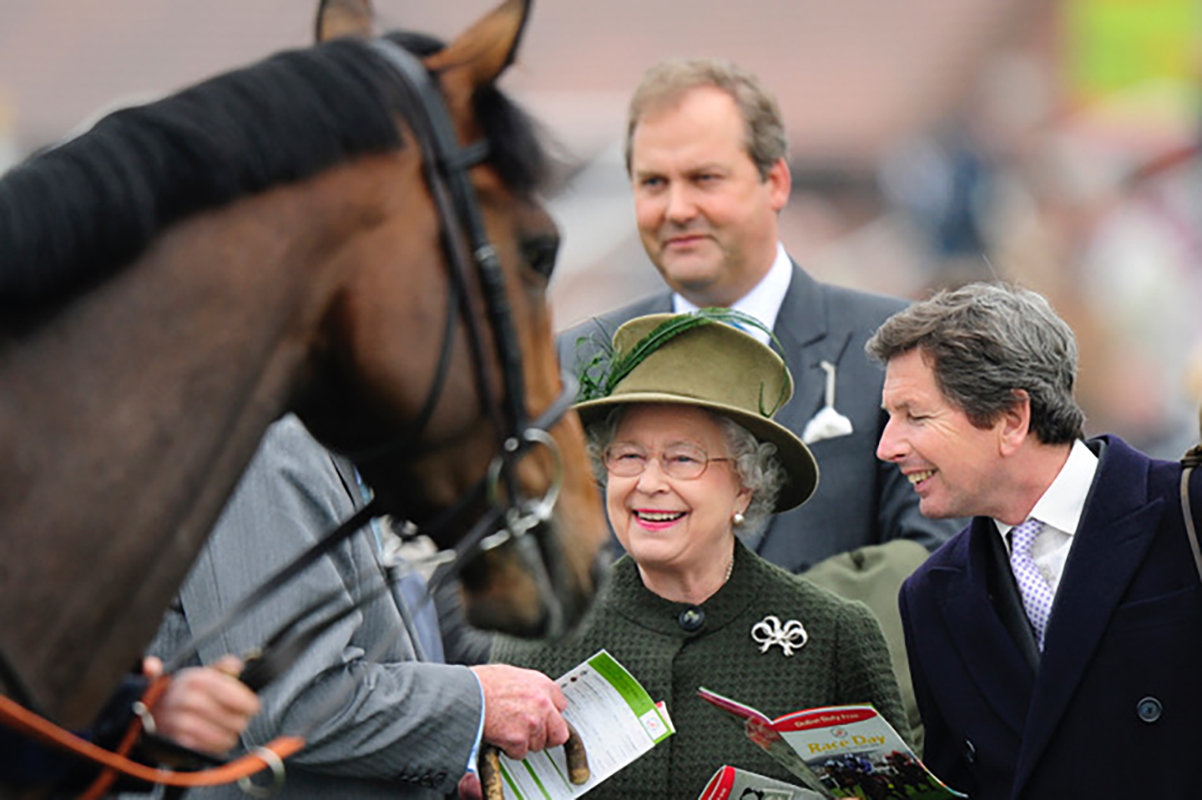
Whether you're donning your best morning suits for Royal Ascot, counting the hurdles of the Grand National or looking forward to a festive flutter on Boxing Day at Kempton Park, horseracing is a sport like no other. But if you want to make the thrill of a winning horse even more glorious, Highclere Racing's the Hon. Harry Herbert says syndicate ownership could be the perfect way in the world of sports horseracing.
Herbert, the 8th Earl of Carnarvon, founded Highclere Thoroughbred Racing in 1992 after leaving a stockbrokerage career in his 20s to study how the racing business compared in the UK and US. Now, it has become one of the most successful multiple ownership companies in Europe, boasting champion horses like Harbinger, Motivator, Memory and Petrushka and even holding royal approval.
Herbert's brother-in-law John Warren, who is director of Highclere Racing, is the Queen's bloodstock and racing advisor – a role that once belonged to Herbert's father the 7th Earl of Carnarvon. The 7th Earl, known to friends by his school nickname Porchey (recently portrayed by Joseph Kloska in Netflix series The Crown), was a close confidant of Elizabeth II until his death in 2001.
Now, Highclere Racing continues that royal friendship and is involved with studding the Queen's horses, as well as providing thoroughbred syndicates that provide lovers of the sports a simple and thrilling way to get involved in the business of horse ownership. Tempus sat down with Herbert to find out more – and to get some expert tips…
Harry, could you tell us a little bit about how you began Highclere Racing?
The racing bug gradually took a grip in my early twenties and, because my mum’s American, I decided to head out to the states to try my hand. My dad is well known in racing circles, so rather than be known as a daddy's boy, I went to Kentucky and Lexington to study the racing business over there. It was in Lexington that I saw a multiple ownership company, making racing ownership more cost effective, and I thought that has to have a market back home. I came back from the states and started Highclere in 1992. >>
Related: Tempus Autumn Nations Trophy comes to thrilling conclusion at Guards Polo Club
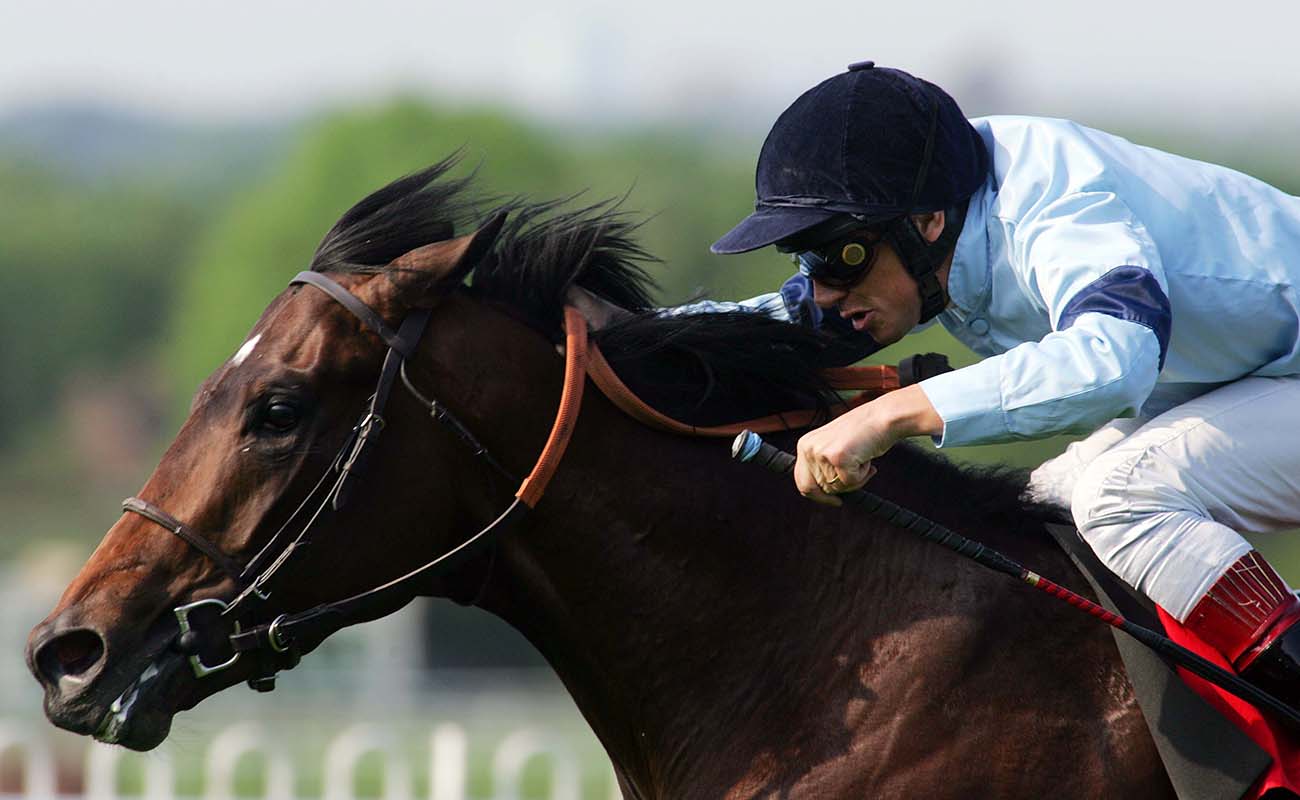
How does syndicated ownership work?
In a nutshell, it’s getting small groups of people together to share in a number of race horses, making the process a whole lot more cost effective – and more fun. We provide all those vital ingredients that go into sole ownership – Highclere’s communication with our syndicate members, the buying process, the whole integrity and transparency of the operation – it's all enabled us to be the leader since our first runners in 1993. Our shares include all costs through to the end of the year so there’s not a constant drip of invoices through the year, once you’re in, that’s it, and we keep everything totally clear and transparent. I’ve always treated Highclere as a luxury business. As a brand, that's hugely important to us. We provide a very hands-on, personal service to our share owners.
How do you go about providing that service?
All of our owners are treated entirely as though they own the horse outright. It’s so important because racing is not just about pitching up on the day to see your horse run, it’s very much about what goes on behind the scenes – such as going to the stable yard. We do well over a hundred stable visits a year where our owners get to see the horses and meet the trainers, the lads and lasses looking after the horses, they can stay in the jockey club rooms in Newmarket which is a phenomenal place and where the jockey club was founded. All the time we’re trying to take the hassle out of it and really keep all the yummy good bits. We arrange private boxes at Newbury, pre-racing at Ascot and Goodwood, our owners get to do some really exciting things that don’t go on elsewhere. Our yearly parade alone is an amazing event.
Highclere has bred and owned champion horses, but what do you look for in a horse?
My brother-in-law John Warren, his son Jake and I are all involved in the buying of our horses. We'll each look at around 100-120 horses per day when looking for our shortlist. We're looking for an athlete. John has got an extraordinary gift in knowing how and where a horse is going to develop. Then, once they're put into the hands of our top trainers – Sir Michael Stoute, John Gosden, William Haggas – that horse can be nurtured. But it's a remarkable gift, to buy a Derby winner for £75,000, or a world champion for £185,000. These horses, if they're good, can become worth huge sums of money.
Your colleague John Warren is the Queen's bloodstock racing advisor as well. What does mean to Highclere?
It's fantastic. My father was the Queen’s bloodstock racing advisor for more than 30 years, and when he died in 2001 John was the perfect choice to take on that role. He’s absolutely brilliant at what he does – he knows every part of the industry, from buying horses right the way through to stud farms and stallions – and he has done the most phenomenal job of taking over from my dad.
The Queen is well known for her love of horse racing. Is she still as involved as ever?
Her Majesty enjoys her racing as much today as she has ever done and she and John are working on the matings of her champion horses, although the offspring won’t be seen on a race course for some years. It’s a marvellous thing that the Queen is planning for that horse's career in three or four years' time. It takes a lot of forward planning, which is fantastic when you're 91 years old. >>
Related: Jets, yachts, supercars: is fractional ownership for you?
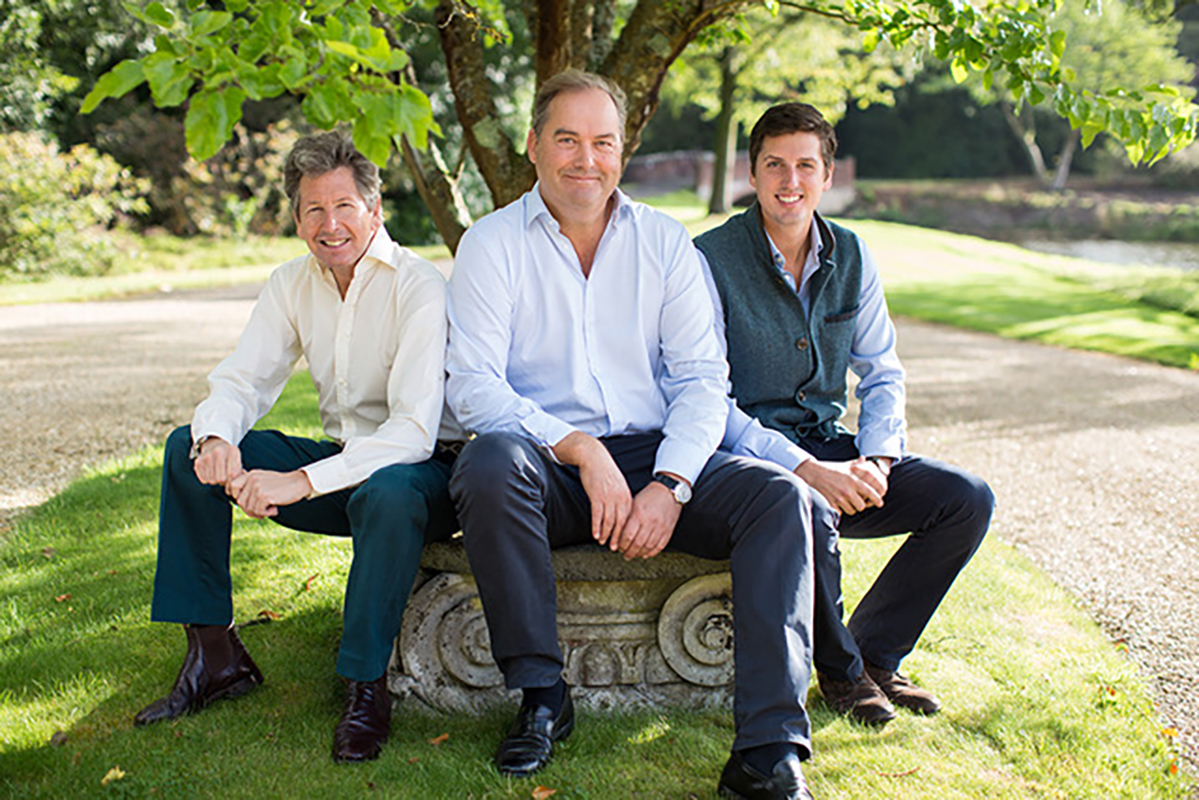
What advice would you give to someone looking to invest in sports horse racing for the first time?
For someone coming in for the first time, a syndicate is a very wise way of doing it. It's very expensive to buy a race horse on your own, and provide the horse with all that comes with it, so actually to put your foot in the water through syndicate ownership is a really good way to start and learn about the business. You've got to look very carefully at track record – the British Horseracing Authority racing website lists companies that are out there, and the key is to look for clear legal agreements that focus on ownership rather than 'investment'. If you’re lucky enough to have a wonderful horse like our own Motivator or Harbinger, then of course there's the potential that a syndicate can make money, but that's not why you come into it.
What are the biggest moments of the year for you?
Royal Ascot is very hard to beat. It’s the most extraordinary day, one of the most famous race meetings in the world, over five days with the Queen attending on every day. From an owner's perspective, there's something truly unique about it – the glamour, history, prestige, fashion. To have a runner at Royal Ascot is something special, to have a horse that’s good enough to run and actually win is remarkable. We’re really proud to have run nearly a hundred horses at the royal meeting over the years.
More than 40% of our Royal Ascot runners have finished in the first four – an important statistic because when you’re getting into race horse ownership it’s difficult to know where to start, but you can come into it knowing that you’ve got a hell of a good chance of racing a horse that may take you to your dreams of potentially winning a race at Royal Ascot. I think hopefully people look at Highclere and see that once you’ve experienced that remarkable feeling of having a winner, that extraordinary elation and emotion – that’s why we do it. That's why the Queen does it.
They say a picture paints a thousand words – a winning horse must beat a thousand sales pitches.
You’re absolutely right. At the end of the day, if we didn’t have good horses then no matter how we position ourselves as a luxury goods company, and make things look pretty and lovely, it just wouldn’t hold together. Racing good horses is really important.
Finally, what are some of your top tips for 2018?
As far as next year is concerned we’ve got a couple of really nice horses – a very good jumper called Posh Trish who is the one who will hopefully take us to Cheltenham, and then on the flats we’ve got a horse called Occupy who won on his debut very impressively at Kempton. We have a horse called Showroom, the son of [former champion] Motivator which is very exciting for us. Showroom's trained by Mark Johnston, and is a lovely horse who could be a bit special.





